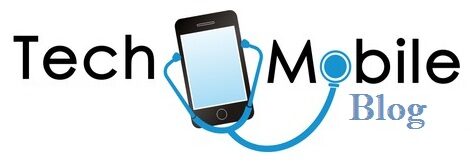How Does Yext SEO Compare to Other SEO Tools?
3 min read
What Yext does well
Here are some of Yext’s strong points:
- Yext offers very broad listings-distribution / syndication: for example, Yext claims to integrate with 200+ publishers (directories, maps, apps) and to propagate updates quickly.
- It has real-time or near-real-time syncing of business data: when you update your business name/address/phone/hours in Yext SEO, the change is pushed out broadly, which helps maintain consistency of business information (NAP) across many platforms.
- It supports enterprise/multi-location workflows well: Because of the scale, Yext tends to be used by businesses with many locations or brands that need to manage lots of listings.
- It includes other features beyond basic listings: review management, analytics, structured-data/schema support (via its “Knowledge Graph” or “Knowledge Network”) and integration with voice search/AI-search scenarios.
Where Yext may have limitations or trade-offs
Some of the areas where Yext may not be the perfect fit (or where alternative tools shine) include:
- Cost: Many users say that Yext is relatively expensive—especially for small businesses or single locations. Acciyo+1
- Control / ownership concerns: Some critiques mention that if you stop using Yext, your listings may revert or you lose certain control over them. One article notes: “You’re effectively renting your listings.” BrightLocal
- Granular local SEO / ranking tracking: Alternatives like BrightLocal are stronger when it comes to very detailed local-rank tracking (neighbourhood grid, map pack tracking) and citation-audit/reporting for small business use. For example, BrightLocal’s “Local Search Grid & Rank Tracking” is highlighted as more detailed than Yext’s. Acciyo+1
- Ease of use for small businesses: Some users say that Yext has a steeper learning curve and may be more complex than simpler platforms oriented toward SMBs. ReputationStacker
- Citation depth vs niche directories: Some alternatives (such as Whitespark) emphasise discovering and building many smaller/niche citations (industry- or location-specific directories) which Yext may not focus as much on. Rayo+1
Comparison: Yext vs Other Tools
Here’s a side-by-side style comparison:
| Feature | Yext | Alternatives (BrightLocal, Whitespark, Moz Local etc) |
| Speed of listing updates / distribution | Very fast, many direct integrations. Yext+1 | Slower in many cases (manual submissions, aggregators). Acciyo+1 |
| Scope / scale (for many locations) | Excellent for large brands / many locations. Local SEObot | Often smaller scale; some tools better for local SMBs or niche citation building. |
| Local ranking tracking & reporting | Good, but not as detailed in hyper-local tracking. Search Atlas – Advanced SEO Software | Some tools offer very detailed rank tracking (geo-grid, map pack) and citation auditing. |
| Cost & value (especially for small businesses) | Higher cost; may be less cost-efficient for few locations. BrightLocal+1 | More budget-friendly options; more flexible pricing for smaller businesses. |
| Ownership of listings / flexibility | Some concerns about “renting” your listings; issues when discontinuing service. Reddit | More flexible ownership, especially with manual citation tools or one-time fees. |
| Features beyond listings (reviews, voice, schema) | Strong — good support for reviews, schema/structured data, voice search readiness. LSEO | Many still provide these, but may specialise or lack breadth. |
Which Tool Should You Choose & When Yext Makes Sense
When Yext makes good sense:
- You manage a brand with many locations (tens, hundreds) and you need highly consistent, network-wide updates.
- You want strong automation and need a platform you can scale across many listings with minimal manual work.
- You care about features like voice-search readiness, structured-data/schema, and broad directory coverage.
- You have the budget and internal resources (or agency support) to manage the platform.
When you might prefer an alternative:
- You are a small business with one or a few locations and a limited budget.
- You value deep local SEO insights, like detailed local rank tracking, audits, and control over niche citations.
- You want the flexibility of building and owning your listings long-term (regardless of subscription).
- You prefer simpler tooling with easier onboarding and less complexity.
Final Thoughts
In short: Yext is a powerful enterprise-grade listing and local-SEO platform, especially good for large scale, multi-location brands that need fast, consistent data propagation and broad coverage. However, for smaller businesses, or those whose core need is granular local rank tracking, niche citation building or cost efficiency, other tools may provide better value and fit.
If you like, I can compare Yext directly with 2-3 other tools (BrightLocal, Whitespark, Moz Local) in more depth (features, pricing, pros & cons) and see which might be best for your scenario (e.g., business size, number of locations). Would that be helpful?





